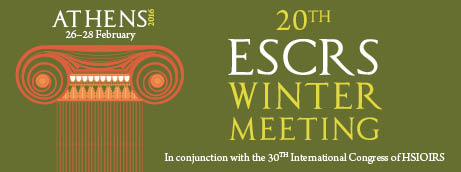Posters
(results will display both Free Papers & Poster)
The effect of corneal cross-linking on conjunctival flora
Poster Details
First Author: N.Polat TURKEY
Co Author(s): A. Gunduz A. Gunduz T. Cumurcu G. Gunduz
Abstract Details
Purpose:
To investigate the effect of the corneal cross-linking (CXL) procedure on the conjunctival flora.
Setting:
Prospective, Cross-sectional study
Methods:
31 eyes of 31 patients who had been diagnosed with progressive keratoconus and had undergone CXL.Conjunctival swab samples were immediately immersed into Amies transport broth and transferred to the microbiology laboratory. They were then inoculated into three areas of blood agar, chocolate EMB agar and Saboraud-Dextrose agar (Oxoid/UK) using the dilution method. The inoculated plates were incubated at 35 oC for 24-48 hours. Preliminary identifications of the reproducing colonies were performed using the catalase and oxidase tests, gram staining and colony morphology. Definite identification of the isolates was made the with Vitek-II (Bio Mérieux/France) fully automated identification kits.
Results:
Conjunctival flora culture positivity was detected in 21 (67.7%) patients in the pre-operative period and 9 (29%) patients in the post-operative period. The conjunctival flora microorganisms that isolated in the pre-operative period were Coagulase-negative Staphylococcus in 21 (67.7%), Staphylococcus aureus in 1 (3.2%), Moraxella spp. in 2 (6.5%), Streptococcus spp. in 2 (6.5%) Corynebacterium spp. in 1 (3.2%) and Micrococcus spp. in 1 (3.2%). Coagulase-negative Staphylococcus in 8 (25.8%), Corynebacterium spp. in 1 (3.2%) and Acinetobacter spp. in 1 (3.2%) were isolated in the post-operative period.
Conclusions:
Corneal cross-linking can cause significant changes in the conjunctiva flora. FINANCIAL DISCLOUSRE: NONE


